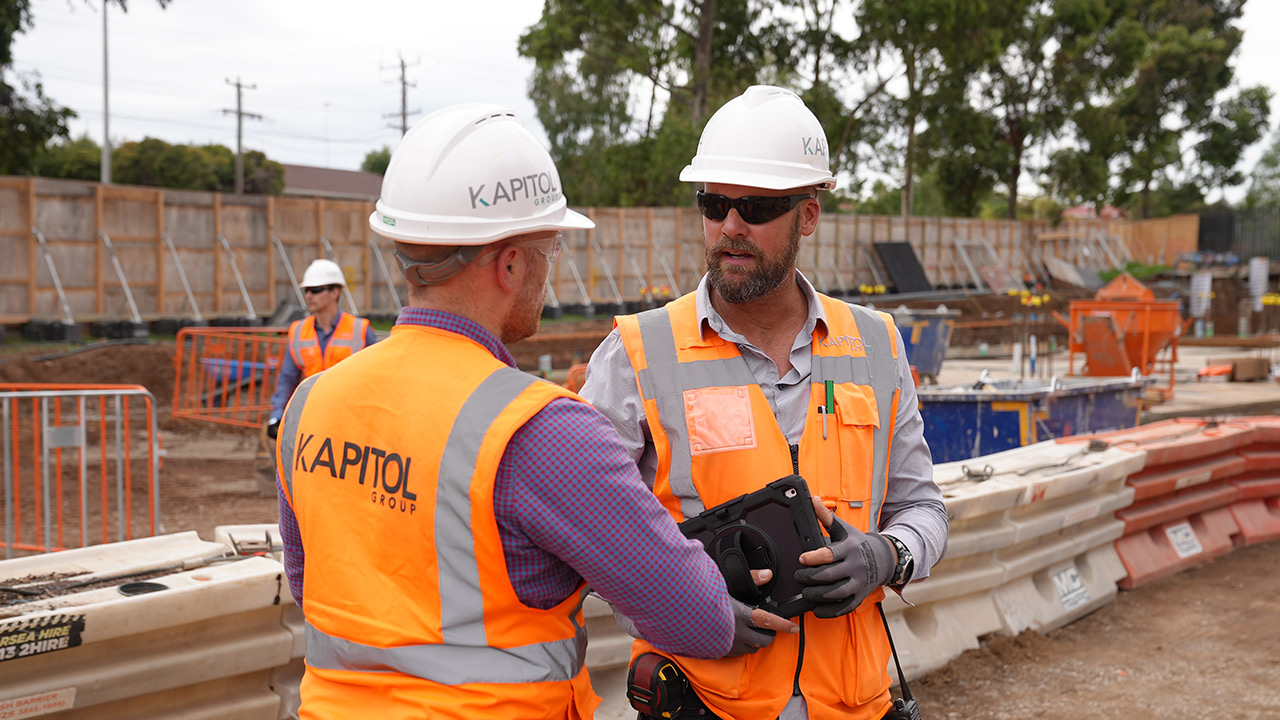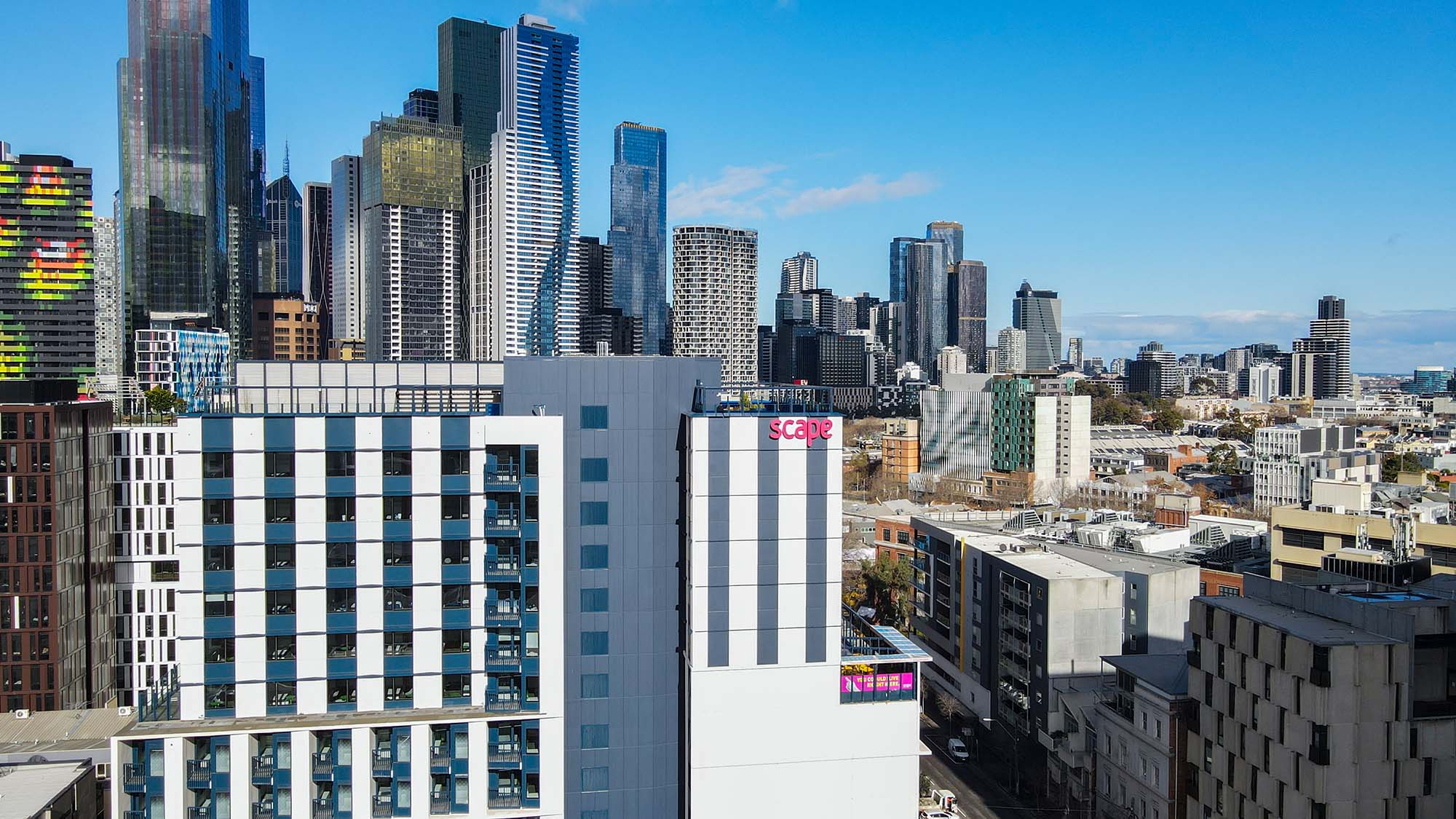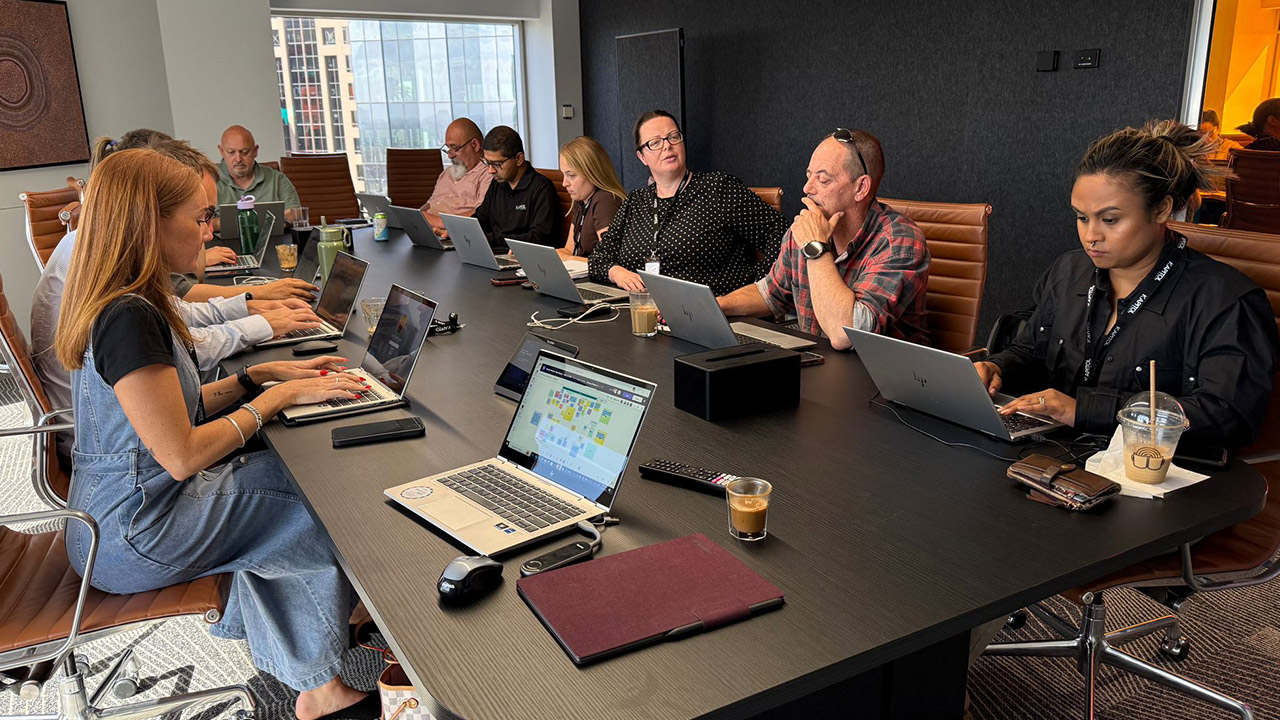
Share this story
We sat down with Selwyn Dexter, our Site Manager at the NEXTDC M2 site, to learn more about his role, lessons learnt and how he works through day-to-day challenges on-site.
As site manager what are you responsible for?
I’m the site manager at NEXTDC M2. As site manager I am responsible for safety on site, implementing the works program, and daily coordination of all trades.
How do you start your day?
To start the day, I prestart with my site supervisors to set the project and tasks ahead for the shift by 7AM. I then hold a prestart meeting with all trades at 7AM, discuss hi-risk activities on site. Each day I also discuss permits, who’s working where, and under who.
I also chair and compile the two week look-aheads for the project for all trades (structures to finishes). I have a weekly meeting with subcontractors and compile the meeting minutes. In this meeting we discuss safety, program QA and it’s an open forum for all subcontractors to bring their issues and our (Kapitol Group) issues to the table.
How do you manage safety on site?
I’m responsible for making sure the project is safe onsite at all times. This includes tower crane erection, tower crane operations, right through to energisation on site. I report to the project manager on site, OH&S manager, construction manager, our operations manager, and our directors from a safety perspective.
Each Tuesday I carry out a safety walk with our safety committee. The safety committee consists of a Kapitol Group Health and Safety Representative, an Electrical Trades safety representative and if there’s high risk works being carried out, we also have a safety representative from the structural trade.
We make observations of any safety issues on site, we log it and provide the workforce a set appropriate amount of time to resolve those issues. Each Thursday, the safety committee reconvene to discuss progress and ensure those safety issues have been resolved.
Broadly speaking, most of the issues I resolve day-to-day are safety and program related. Some common examples include ensuring subcontractors are adhering to basic safety measures like using barricades, exclusion zones, permits and spotters.
What about managing quality on site?
I make sure the team, subcontractors and myself are engaged in the implementation of our QA system. I also call upon my own extensive experience when I’m walking the floors, picking up on quality issues and resolving them where applicable and within my role. At the end of the day it’s all about pushing subcontractors to produce the best quality product for our client.
What are some ongoing challenges you face?
We work outside, we are weather affected, our cranes are affected by weather and this can influence how the day can go. The ongoing coordination of trades is another constant challenge I face. We’re not in a sheltered or protected environment, we work out in the elements so the ongoing coordination to keep the job safe and productive is the biggest ongoing challenge.
Tell us how you share your lessons learnt on Kapitol’s internal Yammer comms channel to benefit others?
I keep it as real life as possible. It’s about being open and honest about mistakes made so that we as a group can learn from it. I think others shouldn’t be afraid to put their name up there and say hey I made a mistake, and this was the consequence, I think people tend to learn more if you make it personal rather than another textbook example.
What do you love the most about your job?
My favourite part of my job is driving past projects that I’ve completed with the family on weekends. I feel a deep sense of accomplishment and am very proud of what we do. I’m very passionate about it.
As site manager what are you responsible for?
I’m the site manager at NEXTDC M2. As site manager I am responsible for safety on site, implementing the works program, and daily coordination of all trades.
How do you start your day?
To start the day, I prestart with my site supervisors to set the project and tasks ahead for the shift by 7AM. I then hold a prestart meeting with all trades at 7AM, discuss hi-risk activities on site. Each day I also discuss permits, who’s working where, and under who.
I also chair and compile the two week look-aheads for the project for all trades (structures to finishes). I have a weekly meeting with subcontractors and compile the meeting minutes. In this meeting we discuss safety, program QA and it’s an open forum for all subcontractors to bring their issues and our (Kapitol Group) issues to the table.
How do you manage safety on site?
I’m responsible for making sure the project is safe onsite at all times. This includes tower crane erection, tower crane operations, right through to energisation on site. I report to the project manager on site, OH&S manager, construction manager, our operations manager, and our directors from a safety perspective.
Each Tuesday I carry out a safety walk with our safety committee. The safety committee consists of a Kapitol Group Health and Safety Representative, an Electrical Trades safety representative and if there’s high risk works being carried out, we also have a safety representative from the structural trade.
We make observations of any safety issues on site, we log it and provide the workforce a set appropriate amount of time to resolve those issues. Each Thursday, the safety committee reconvene to discuss progress and ensure those safety issues have been resolved.
Broadly speaking, most of the issues I resolve day-to-day are safety and program related. Some common examples include ensuring subcontractors are adhering to basic safety measures like using barricades, exclusion zones, permits and spotters.
What about managing quality on site?
I make sure the team, subcontractors and myself are engaged in the implementation of our QA system. I also call upon my own extensive experience when I’m walking the floors, picking up on quality issues and resolving them where applicable and within my role. At the end of the day it’s all about pushing subcontractors to produce the best quality product for our client.
What are some ongoing challenges you face?
We work outside, we are weather affected, our cranes are affected by weather and this can influence how the day can go. The ongoing coordination of trades is another constant challenge I face. We’re not in a sheltered or protected environment, we work out in the elements so the ongoing coordination to keep the job safe and productive is the biggest ongoing challenge.
Tell us how you share your lessons learnt on Kapitol’s internal Yammer comms channel to benefit others?
I keep it as real life as possible. It’s about being open and honest about mistakes made so that we as a group can learn from it. I think others shouldn’t be afraid to put their name up there and say hey I made a mistake, and this was the consequence, I think people tend to learn more if you make it personal rather than another textbook example.
What do you love the most about your job?
My favourite part of my job is driving past projects that I’ve completed with the family on weekends. I feel a deep sense of accomplishment and am very proud of what we do. I’m very passionate about it.
Latest News

Scape Leicester St - Clean and Green Student Living
Located on the doorstep of University of Melbourne and the Melbourne Law School in the bustling student mecca of Carlton, the Scape Leicester Street project is one of Kapitol Group’s most acclaimed residential developments.

Blending AI & Old School Communication for Optimal Construction Delivery
Leading builder and construction industry innovator Kapitol, together with project management company Newbridge, are currently delivering 100MW through the second stage of NEXTDC’s M3 data centre in Melbourne.

Enhancing Construction Quality with Ishikawa Sessions
Our Ishikawa workshops uncovered ideas to enhance construction processes, with 90 participants driving improvements for a successful 2025.
